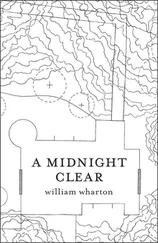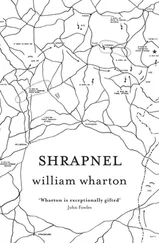I pick up my box and we begin moving toward home. The ground’s hard but there’s no ice. I open up the telegram; it’s from my sister.
MOTHER HAD A SERIOUS HEART ATTACK
STOP CAN YOU COME STOP LOVE JOAN
Well, that shakes me. In her special way, my mother has always seemed so indestructible.
When we get back to the mill, I show the telegram to Vron. I sit down but I’m not hungry. It’s obvious I must go back. Joan is not a panic type. If she says it’s serious, it is.
With Vron’s help, I start packing. She’s so calm, so reassuring; definitely the cool head in our menage. I’m still not believing what I’m doing. I’m going to be leaving all this quiet beauty. Within a day I’ll be in Los Angeles, in Palms, on the dead-end street where my parents live. I try to be calm, try not to frighten Jacky. I tell him his grandmother’s sick and I must go see her. It’s hard for an eight-year-old to comprehend what it means. He has no idea how long I’ll be gone; neither do I, for that matter.
Vron drives me to the train for Paris and I catch an Air France flight direct to L.A. Eight hundred and fifty dollars for a twenty-one-to-forty-five-day excursion ticket. Excursion, hell! But it’s significantly cheaper than a regular ticket.
I’ve telegraphed from Paris, giving my flight number, so when I step out of the plane, Joan and her husband, Mario, are there.
We pile my things into their VW camper. Joan and Mario always drive either a camper or a station wagon; they have five kids. We’re pulling up onto Sepulveda when Joan starts telling me what’s happened.
She came over to see Dad and Mom but they weren’t home. She took the opportunity to vacuum and wash some windows. Then she began to worry. They’re probably shopping, they don’t go much of anywhere these days; but it shouldn’t be taking so long.
She drives over and finds them in the shopping mall. Mother is sitting on a bench next to the Lucky Market, white-faced. Dad, not knowing what to do, not believing what’s happening, is packing and unpacking groceries in the trunk of the car.
Joan’s frightened by the way Mom looks. She drives them home in their car, leaving hers in the parking lot. At the house, she tells Dad to put the groceries away and rushes Mom off to the Perpetual Hospital. Mother doesn’t want to go. She’s a hypochondriac who likes doctors but doesn’t like hospitals.
At the hospital they spot immediately she’s having a coronary crisis. They rush her into an intensive care unit and plug her onto monitoring systems, IV, oxygen; give her tranquilizers, blood thinners.
On that first night in the hospital, she’d had the big coronary. If you must have a coronary, an intensive care unit is a good place for it. They tell Joan it was massive and if she’d had it outside the hospital, she’d never have survived. The final tests aren’t all in, but they’re sure she’s lost a significant part of her lower left ventricle.
Well, she isn’t dead, but it doesn’t sound good.
We go directly to my parents’ house. One reason Joan wants me here is to look after Dad. She seems more worried about him than Mom. I’m the same. I don’t know why we both have this feeling Mom can always take care of herself, but we do; it doesn’t make sense. It’s probably only a defense.
Dad’s standing at the screen door waiting. I’m sure he’s been getting up and looking, every time a car’s come near. We shake hands; men don’t hug in our family. He isn’t crying but his eyes are filled with tears and his face is yellow. He’s nervous and his hands are shaking.
He sits down in his platform rocker just inside the door while I carry my bag into the middle room down the hall. He seems much frailer than the last time I saw him. It’s been almost two years. He doesn’t look particularly older, or even thinner, only less vital.
On the way, Joan said I should make as little of Mom’s attack as possible because Dad’s scared out of his wits. So we have a glass of that crummy muscatel my folks drink for wine. They buy it in gallon jugs, then pour it into a fake crystal bottle. It’s part of Mother’s effort toward elegance. It’s not bad if you’re munching on a toasted cheese sandwich, but God, it’s sweet as candy. If you don’t like wine it’s fine, somewhere between cream soda and a Manhattan.
We sit there. Dad still hasn’t been to the hospital; Joan told him there were no visitors allowed. So when I leave, I sneak out the side door and ease my parents’ car out of the patio. It’s a 1966 Rambler, and has all of twenty-five thousand miles on it. Here’s an eleven-year-old automobile in showroom condition. They keep it covered with plastic; even the seat covers are plasticized. It has air conditioning, a radio, power brakes, power steering, the works. It’s like stepping into the past when you drive this car. It drives smooth as hell with automatic drive and is heavily horsepowered for a small car. Dad bought it, when he was still interested in cars, as his final, retirement automobile. He made a gamble on this one, and it’s been a real winner, simple classic lines, square back.
At the hospital, in the lobby, a nice woman tells me how to find intensive care.
Most likely, nobody ever gets used to hospitals, or is comfortable in them, except perhaps doctors or nurses. The vibes are all trouble: pain and death.
But this hospital is somehow different, modern. There’s carpeting, and Muzak playing everywhere. There’s no hospital-white-tile-and-shiny-waxed-floor feeling. It doesn’t even smell like a hospital; more like a Holiday Inn. Even the elevator: little ding when you get in, self-operated; Muzak. Muzak on every floor, same soothing music playing all the time everywhere.
Following signs, I work my way to the intensive care unit. At the desk I identify myself, ask if I can see my mother. They tell me she’s very sick and can’t take excitement. I tell them I’ve come all the way from Paris. There’s a brief conference; it’s decided I can go in but must be very quiet.
I move softly past rows of cubicles. Everybody’s plugged in and taped up, most of them unconscious. This is truly the final stop before the grave, the modern version of an Indian dying house.
I don’t know what to expect; even without heart attacks people change tremendously in two years. It’s always a shock to see somebody this age after some time has past. I know we’re all changing, the kids, Vron, me; but we see each other so often we don’t notice.
I look in and there she is. Probably, since I was a kid, I haven’t seen Mom in bed. I left home for the army at eighteen, and before that I don’t think I ever went into their bedroom, at least not after I was ten. Now I see her there, bed tilted, oxygen tube up her nose, all the monitors, IV, catheters. There’s a computer readout screen over her head showing an ongoing cardiograph, there’s also a little red dot indicating her pulse with a digital readout. She looks like a failed astronaut.
She’s a greenish-white color and her eyes are closed. Her face is a mask.
It’s a strange thing about Mom’s face. It has all the lines and marks of her past expressions, most of these negative. There are hard traces of suspicion, strong lines of dissatisfaction and complaint. They’re deeply incised, even in repose. At the same time, there’s something young about her. She keeps her hair tinted toward black and her hair is husky, hard, thick. So different from Dad. His face is smooth, satin smooth, his hair only white tufts over his ears.
Mother uses a medium amount of makeup, not exaggerated for a woman seventy. She’s never looked her age. I look at her, even here sick, maybe dying, and she doesn’t look much over fifty-five.
I sit down in a chair beside the bed and watch the machines trying to tell me what’s happening. I know they have monitors out there in the central nursing station. I wonder what would bring them rushing in.
Читать дальше












